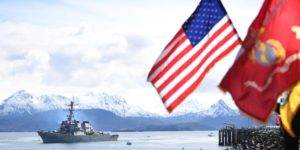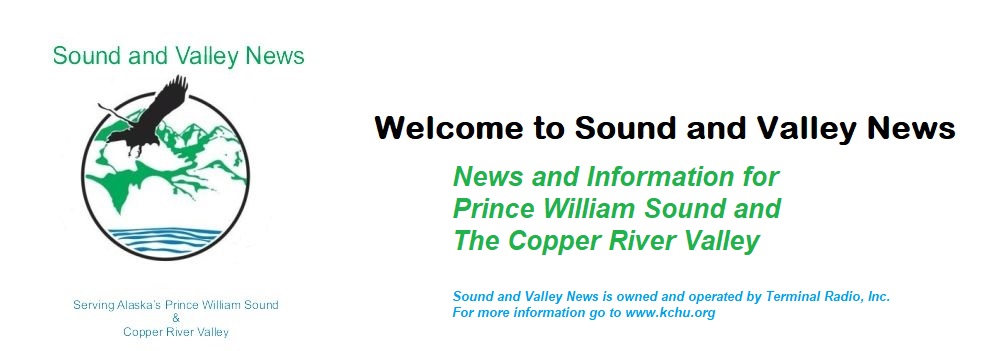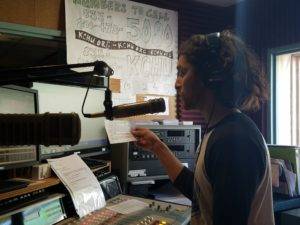Military officials are scheduled to present plans for the upcoming Northern Edge 2019 training at this week’s Alaska Forum on the Environment. The controversial exercise will bring 6000 service members to the state for a war simulation. The two-week training is slated to take place in mid-May. But opponents to this timing say it may interfere with fish runs and mammal migrations in the Gulf of Alaska. KCHU’s Shahmeer Azmat has this report. Cilck on the picture below to listen to the KCHU audio. A transcript of the story and a link to the related Associated Press coverage is below the picture.

Proponents of the Northern Edge joint military exercise say Alaska’s diversity of landscape and sparse population make it an unrivaled training ground. The joint exercise between the US Navy, Air Force, Army, and Marine Corps has taken place irregularly in spring or summer since 2004. The 2019 training is slated for May 13-24. But many in coastal communities lining the Gulf of Alaska oppose this timing.
DUNE LANKARD: “The timing of the bombing, it’s right when the Copper River fishery begins. And that’s when all five species of salmon are swimming around out in the Gulf, from young fingerlings to adults that we’re getting ready to harvest. And all the eulachon out there. The entire Copper River delta just comes to life.”
That’s DUNE LANKARD, co-founder of the Eyak Preservation Council, a non-profit group based in Cordova aiming to protect salmon habitat and the indigenous Eyak way of life. He says hosting a mid-May simulated war in the Gulf of Alaska defies common sense knowledge.
DUNE LANKARD: “As an indigenous Eyak Indian with thousands of years of inhabitance in the region and the fact that we still practice and live a subsistence way of life and as an active commercial fisherman, there’s really no good time to bomb the Gulf of Alaska.”
Opponents to the timing of Northern Edge have expressed concern about impacts to fish and marine mammals from planned explosions, underwater sonar, and deposits of hazardous chemicals. Here’s Alaska Senator Lisa Murkowski urging military officials to work collaboratively with communities to select a date.
|
|
LISA MURKOWSKI: “We’ve got 2019 that is in the planning and what I would ask of you is that you engage with communities around the Gulf of Alaska to collaboratively determine a time for the exercises to take place that will have the least possible risk for negative effect and conflict with the fishery.”
In 2011 and 2016, the US Navy released environmental impact statements to evaluate consequences to the Gulf from the exercise. Spanning hundreds of pages, the document admits that the use of sonar and explosives has the potential to disturb certain marine mammals and injure Dall’s porpoises.
The EIS also restricts certain activities by military vessels such as requiring them to relocate or postpone activities if birds or mammals are spotted. But Carol Hoover, executive director of the Eyak Preservation Council, says there’s no way to be sure.


